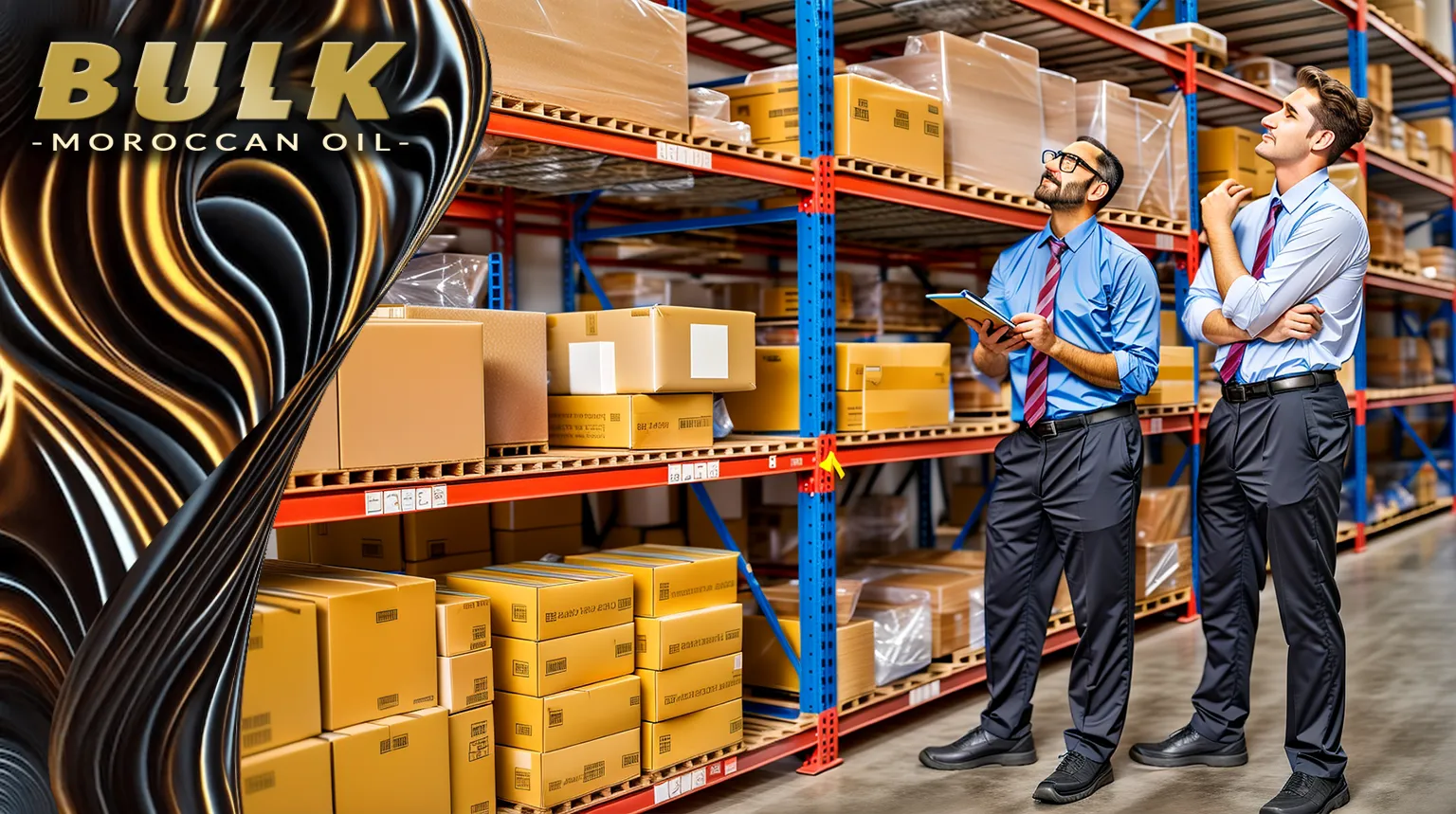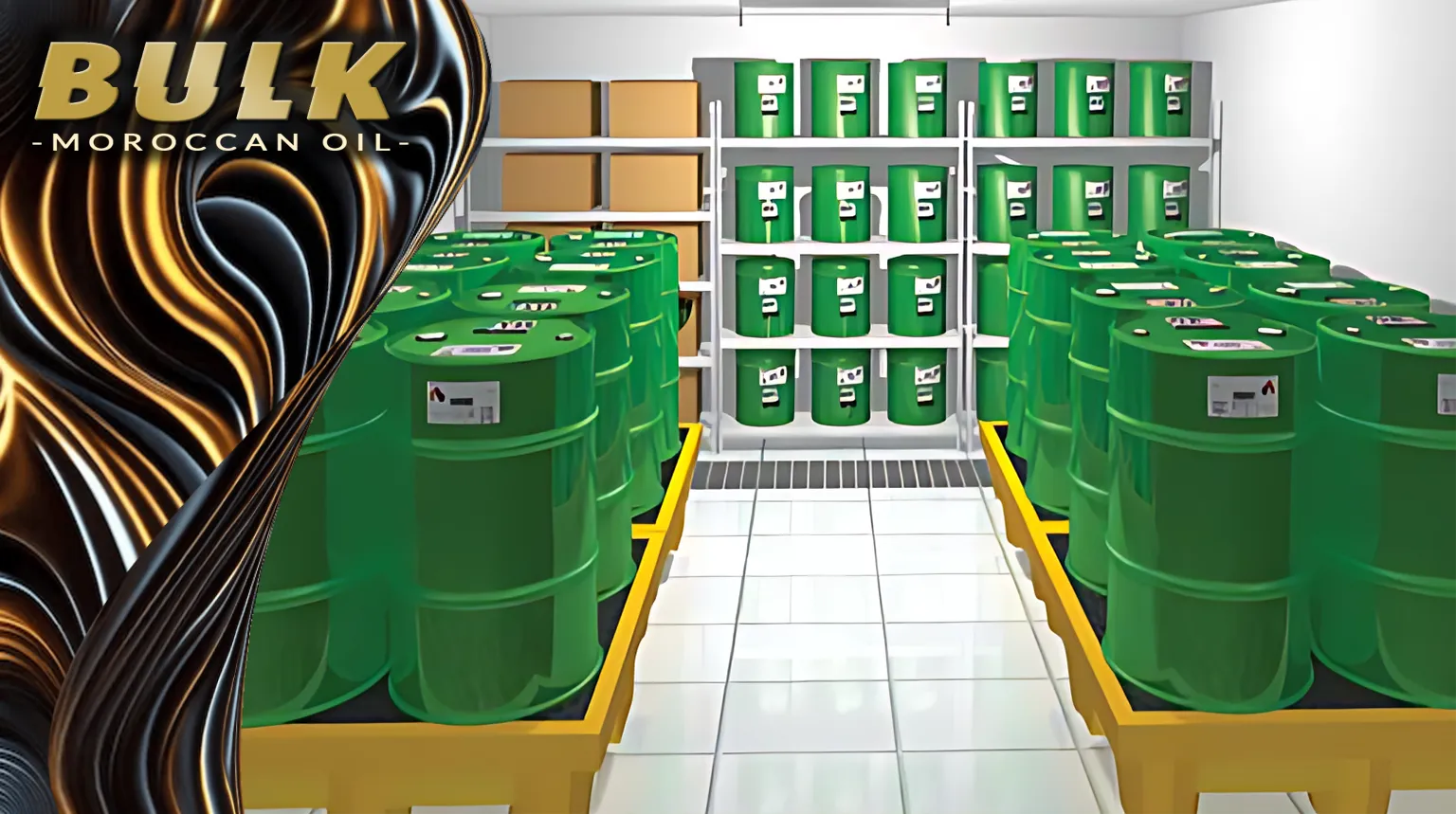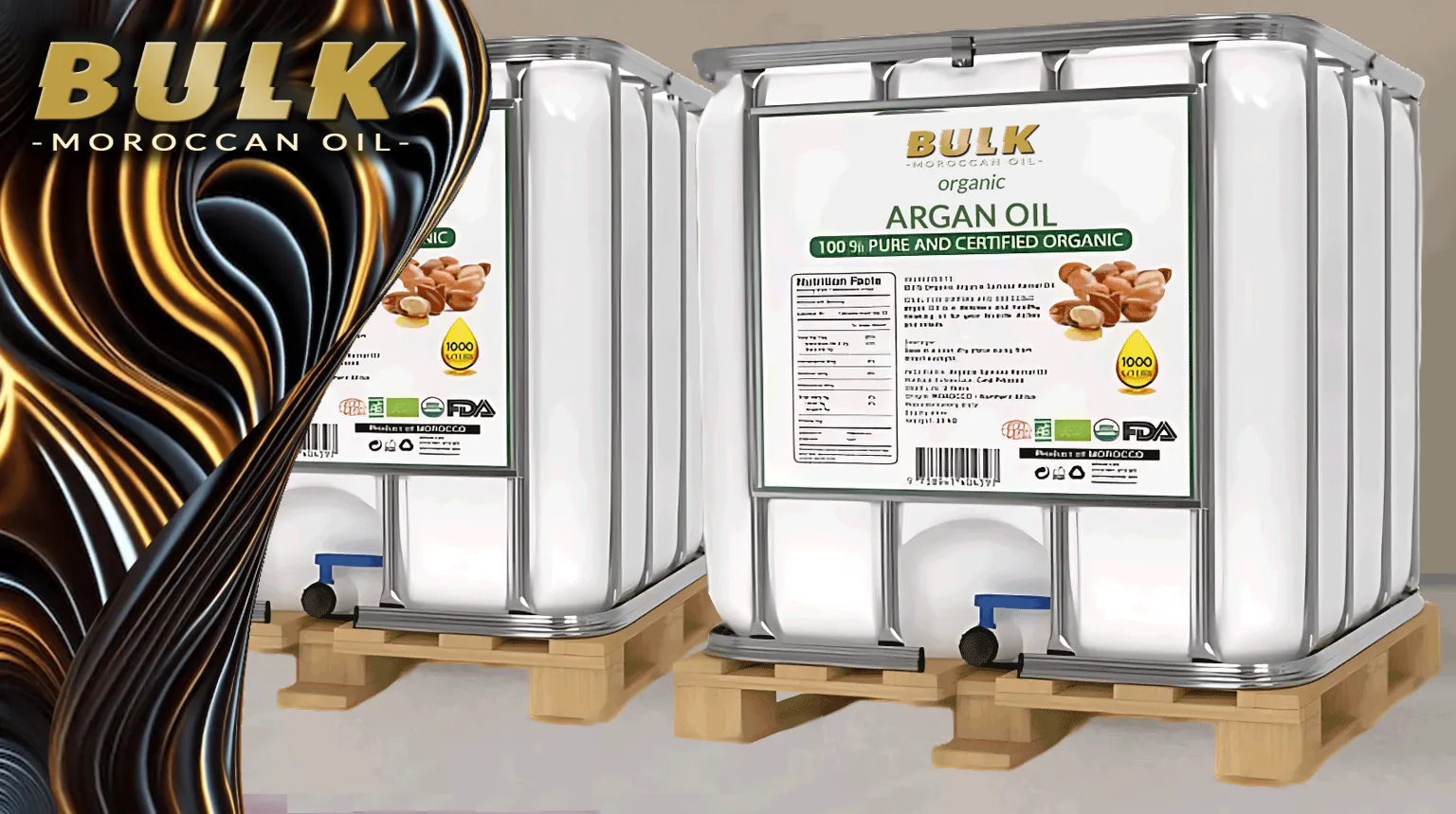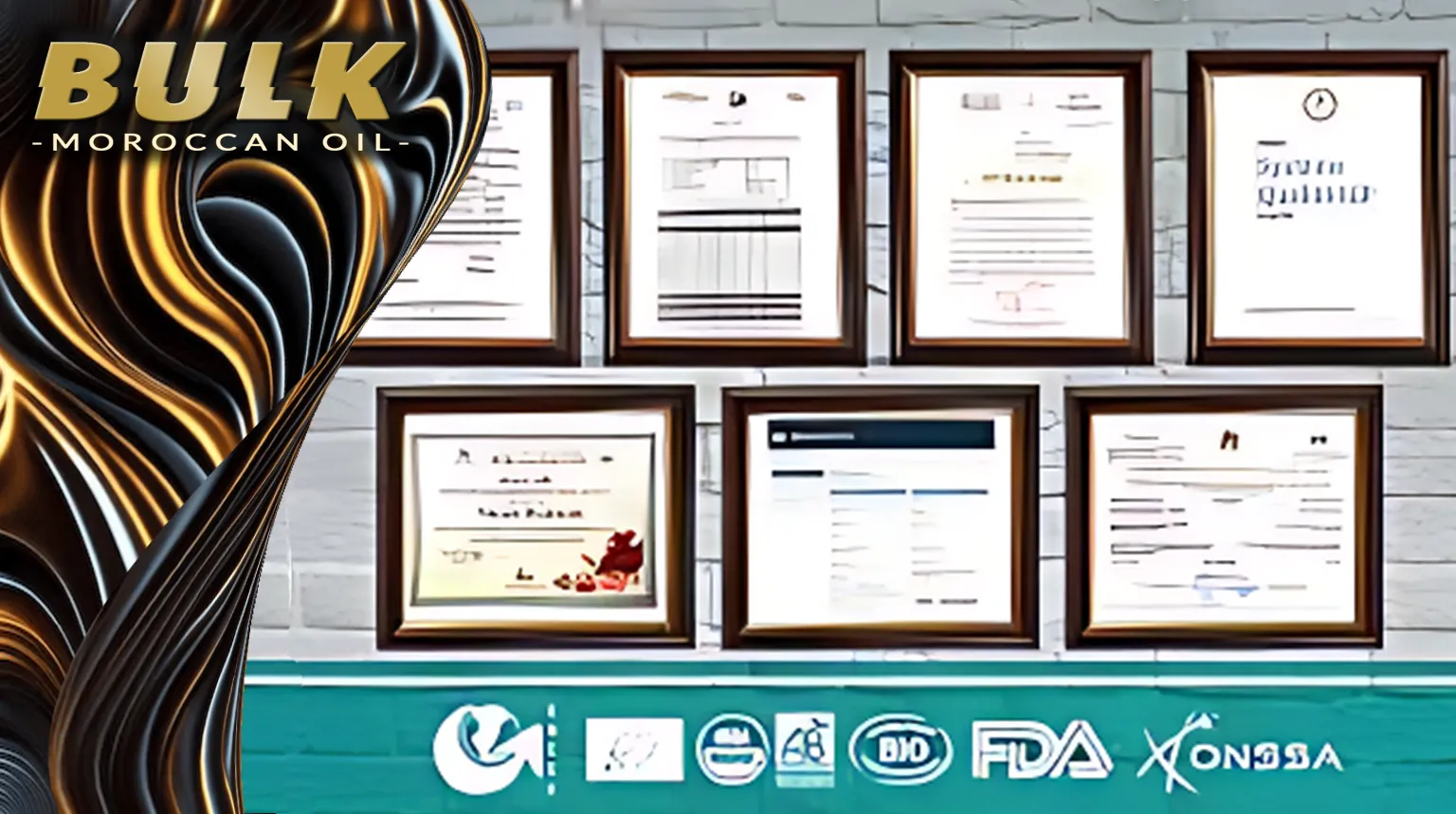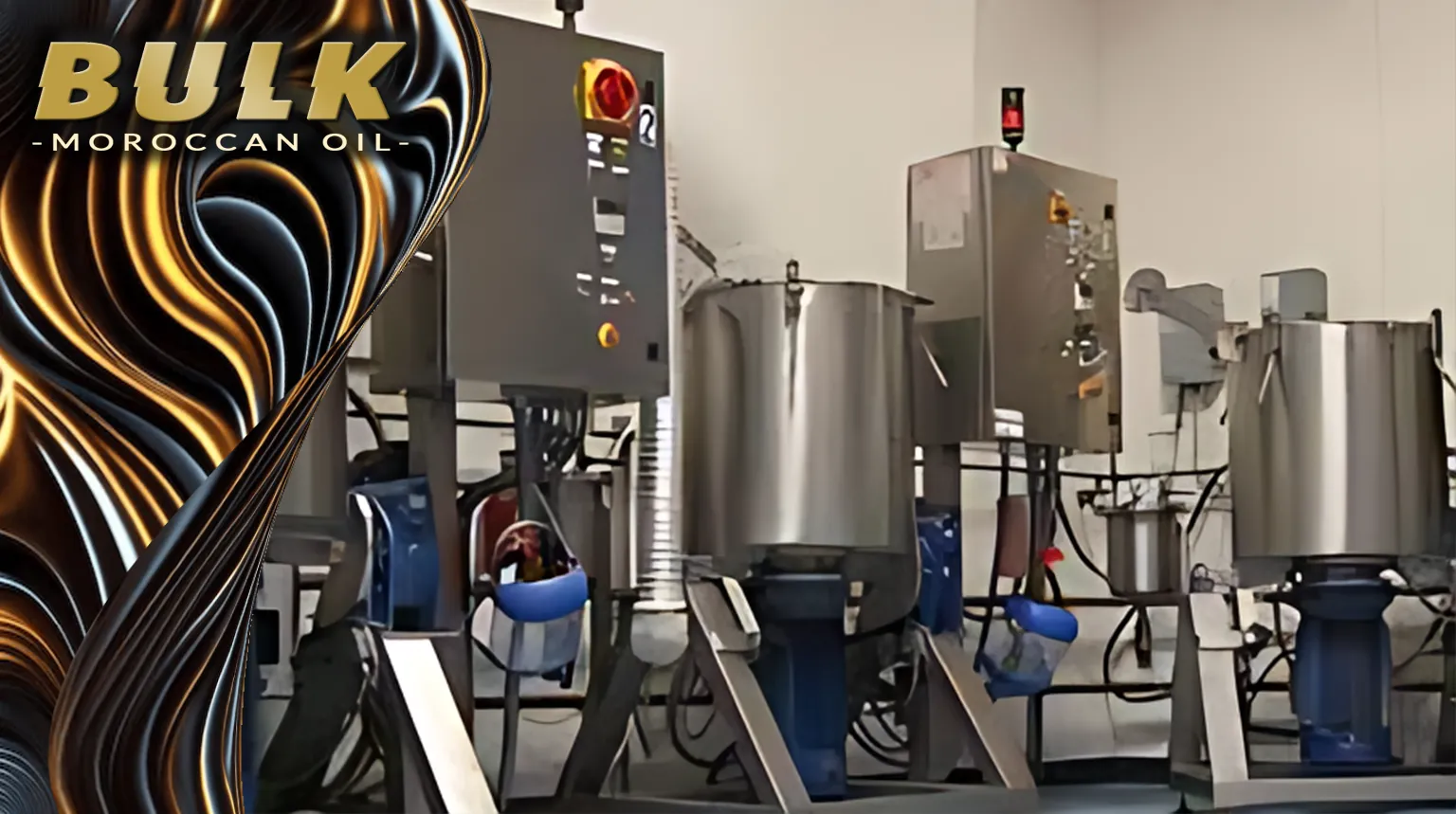Wholesale Products: Securing Financing for Your Wholesale Business
Starting a wholesale business requires careful consideration of sourcing strategies and securing adequate financing. This comprehensive guide will explore various financing options available to wholesale companies and how to secure loans and find lenders.
Content:
- Types of Financing Options for Wholesale Businesses
- How Financing Can Help Your Wholesale Business
- Does My Wholesale Business Qualify for Financing?
- How to Apply for Wholesale Business Loans
- Final Thoughts
- Key Points Summary
This blog is brought to you by BULK Moroccan Oil, your wholesale supplier for organic pure Argan oil.

Introduction
Sourcing wholesale products is a crucial aspect of running a successful wholesale business. It involves finding reliable suppliers, negotiating competitive prices, and maintaining a consistent supply of high-quality products. Additionally, securing proper financing is essential to cover initial inventory costs, operational expenses, and future growth opportunities.
In this article, we will discuss the different financing options available and provide insights on effective sourcing strategies for wholesale businesses.
1. Types of Financing Options for Wholesale Businesses
When it comes to financing your wholesale business, several options are available to consider:
- Asset-based lending: This financing option allows you to use your company's assets, such as equipment or inventory, as collateral for a loan. It provides quick access to working capital and is suitable for wholesalers with valuable assets.
- Inventory financing: Also known as wholesale equipment finance, this option supports purchasing business software, equipment, or stock. It provides funds to invest in various aspects of your wholesale business, such as staff costs, supplier payments, and stock purchasing.
- Factoring/accounts receivable lending: This financing method involves selling your wholesale business invoices to a third party. It allows you to receive immediate funds by selling your outstanding invoices at a discount.
- Traditional unsecured and secured loans: These loans are suitable for larger wholesale businesses with significant expenses, such as expanding premises or investing in new facilities. Unsecured loans are based on creditworthiness, while secured loans require collateral.
2. How Financing Can Help Your Wholesale Business
Proper financing plays a vital role in the success and growth of your wholesale business. It can help in various ways:
- Increased inventory: Financing allows you to expand your product inventory, meet customer demands, and capitalize on sales opportunities.
- Investment in growth: Adequate funding enables you to invest in business expansion, such as hiring additional staff, upgrading technology, and expanding your market reach.
- Cash flow management: Financing helps maintain a healthy cash flow by covering overhead costs, supplier payments, and operational expenses.
3. Does My Wholesale Business Qualify for Financing?
To secure financing for your wholesale business, lenders typically consider factors such as:
- Assets or collateral: You need to present collateral, including equipment, inventory, or other valuable assets within your wholesale business.
- Stock volume history: Demonstrating a consistent history of stock volume and sales can improve your chances of qualifying for financing.
- Financial statements: Lenders may review your financial statements, including annual turnover, sales figures, and cash flow projections.
- Creditworthiness: Good credit history and a strong business plan can positively impact your eligibility for financing.
4. How to Apply for Wholesale Business Loans
To apply for wholesale business loans, follow these general steps:
- Determine the loan type: Decide which loan type suits your business needs, such as bank loans, online short-term loans, credit cards, or equipment loans.
- Gather necessary documents: Prepare relevant documents, such as your business financial statements, proof of turnover, and identification documents.
- Review and apply: Carefully review your wholesale business loan application, ensuring accuracy and completeness. Follow the lender's instructions for submitting your application.
- Consider alternative lenders: Explore alternative lenders,
- such as online lenders or specialized wholesale finance providers, who may offer more flexible financing options tailored to the specific needs of wholesale businesses.
- Follow up and provide additional information: Stay proactive in the application process and be prepared to provide any additional information or documentation requested by the lender. Promptly respond to their inquiries to keep the process moving forward.
5. Final Thoughts
Sourcing wholesale products and securing financing are vital aspects of running a successful wholesale business. Exploring the various financing options available, such as asset-based lending, inventory financing, factoring, and traditional loans, can provide the necessary funds to support inventory purchases and operational expenses. Financing is crucial in expanding the product inventory, investing in growth opportunities, and managing cash flow effectively.
Understanding the criteria for qualifying for financing and preparing the required documents can enhance the chances of securing loans for wholesale businesses. Wholesalers can confidently navigate the financing landscape by following the application process diligently, considering alternative lenders, and seeking professional guidance.
Armed with the right financing and sourcing strategies, wholesalers can source high-quality products, meet customer demands, and achieve long-term success in the competitive wholesale industry.
As business owners, exploring funding options is crucial for growth. Invoice finance offers a flexible finance solution, allowing access to working capital based on outstanding invoices. It is an unsecured funding option that provides a line of credit to help manage cash flow.
Credit score plays a role in determining interest rates and repayment terms. Repaying the borrowed funds in a timely manner is essential for maintaining a good credit score. Consider different funding solutions, such as invoice finance or a line of credit, to meet your business's financial needs.
6. Key Points Summary:
- Various financing options, including asset-based lending, inventory financing, factoring, and traditional loans, can help wholesale businesses secure necessary funds.
- Financing enables wholesalers to increase inventory, invest in growth opportunities, and effectively manage cash flow.
- Qualifying for financing depends on factors like assets or collateral, stock volume history, financial statements, and creditworthiness.
- Applying for wholesale business loans involves determining the loan type, gathering necessary documents, reviewing and submitting the application, and considering alternative lenders.
- Sourcing products and securing financing are vital for wholesalers to meet customer demands, expand their inventory, and achieve long-term profitability.
Other Articles in this Series:
- Becoming a distributorUnderstanding the Wholesale Business
- Understanding The Wholesale Business
- Securing Financing For Your Wholesale Business
- Planning Your Wholesale BusinessSourcing Wholesale Products
- Sourcing Wholesale Products
- Setting Up Your Wholesale Business
- Understanding the Wholesale Pricing Model
- Marketing and Selling Wholesale Products
- Managing Operations and Logistics
- Expanding and Growing Your Wholesale Business
- Tips Making A Blueprint for a Successful Wholesale Distribution Business
Sources:
- "Funding for Wholesale Businesses" | Aurora Capital
- "Wholesale Business Financing Options Loans, Mortgages & More" | Business Financing
- "Finance for Wholesalers" | Capify
- "Wholesale Business Finance" | Rangewell
- "What Are Wholesale Business Loans?" | Aurora Capital
- "Access Credit and Grow Your Wholesale Business With multi-fi Business Finance" | multifi
- "Wholesale Funding for Ambitious SMEs" | Spark Finance
- "Wholesale Business Finance" | PMD Business Finance
- "Wholesale Finance (UK) | Invoice Finance for Wholesalers" | SME Finance
- "Invoice Finance for the Wholesale Industry" | Touch Financial
Hashtags:
wholesale #wholesalebusiness #businessfinance #lender #wholesalefinance #smallbusiness #entrepreneur #funding #businessloans #financialsupport #wholesalesolutions #growth #cashflow #businessgrowth #success
Frequently Asked Questions (FAQ)
Q: What is wholesale business finance?
A: Wholesale business finance refers to the financial activities involved in managing and funding a wholesale business, including securing loans, managing cash flow, and finding lenders.
Q: How can business finance help wholesale companies?
A: Business finance can help wholesale companies by providing the necessary funding to support operations, purchase inventory, and expand their business.
Q: What are the funding options available for wholesale businesses?
A: Funding options for wholesale businesses include business loans, lines of credit, invoice financing, and merchant cash advances.
Q: What is invoice financing in wholesale business finance?
A: Invoice financing is a form of funding where a lender advances funds based on outstanding invoices, providing immediate cash flow for the wholesale business.
Q: How can wholesale business owners find the right lender?
A: Wholesale business owners can find the right lender by comparing loan terms, interest rates, repayment options, and overall suitability for their business needs.
Q: What are the key factors to consider when securing loans for wholesale businesses?
A: Key factors to consider when securing loans for wholesale businesses include the loan amount needed, repayment terms, interest rates, and impact on cash flow.
Q: What are the 5 easy steps to secure funding for a wholesale business?
A: The 5 easy steps to secure funding for a wholesale business include assessing funding needs, researching lenders, preparing financial documents, applying for loans, and evaluating loan offers.
Q: What is wholesale business finance?
A: Wholesale business finance refers to the financial strategies and resources used by wholesalers to secure loans and find lenders for their operations.
Q: What are some common funding options for wholesale businesses?
A: To secure funding, wholesale businesses can explore options like business lines of credit, merchant cash advances, and capital loans.
Q: How can wholesale companies benefit from invoice financing?
A: Invoice financing allows wholesale companies to access cash tied up in unpaid invoices, improving cash flow and enabling business growth.
Q: What is the importance of credit score when applying for wholesale funding?
A: A good credit score is crucial for wholesale business owners seeking loans as it demonstrates their creditworthiness to potential lenders.
Q: What are the types of wholesale loans available for wholesale businesses?
A: Wholesale loans can be secured business loans, unsecured business loans, or other types of financing tailored for the wholesale sector.
Q: How do you determine the right business funding for your wholesale business?
A: Assess your business needs, repayment capabilities, and growth objectives to find the funding option that is most suitable for your wholesale operations.
Q: What are the five easy steps to secure financing for your wholesale business?
A: The steps include evaluating your loan amount needs, researching lenders, improving your credit score, preparing necessary documentation, and submitting a well-crafted loan application.










